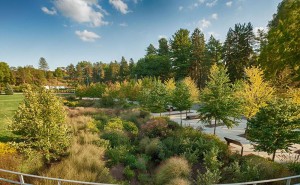 Pediatric dentist Dr. Hicham Riba has taken a personal interest in environmental causes throughout the course of his professional career. The studies of Dr. Hicham Riba have focused on the bioswale, which he considers an underrated feature in today’s environmental planning. Below, Dr. Hicham Riba explains how a bioswale works in the environment to protect humans and other living beings.
Pediatric dentist Dr. Hicham Riba has taken a personal interest in environmental causes throughout the course of his professional career. The studies of Dr. Hicham Riba have focused on the bioswale, which he considers an underrated feature in today’s environmental planning. Below, Dr. Hicham Riba explains how a bioswale works in the environment to protect humans and other living beings.
Interviewing Experts: We appreciate you coming today to offer your perspective on this subject.
Dr. Hicham Riba: I’m honored to do so.
Interviewing Experts: Our conversation today is going to be about bioswales. What is a bioswale and why is a bioswale such a viable option for environmentalists?
Dr. Hicham Riba: A bioswale offers an attractive landscape while playing a significant role in the management of stormwater.
Interviewing Experts: Is the definition of a bioswale consistent across the world?
Dr. Hicham Riba: Bioswales are also known as in-line bioretention, grassed swales, biofilters or infiltration swales.
Interviewing Experts: What is the standard definition of a bioswale?
Dr. Hicham Riba: Bioswales are highly regarded as open channels that are vegetated and can help treat the runoff of stormwater.
Interviewing Experts: How does it compare to an open ditch?
Dr. Hicham Riba: A bioswale can also convey significant storm water volumes from the original source to a specific discharge point.
Interviewing Experts: How is a bioswale different from a ditch?
Dr. Hicham Riba: A bioswale is designed to slow water, which is then infiltrated along the path, allowing natural processes to serve as a cleansing agent for the storm water.
Interviewing Experts: What’s the comparison with a rain garden?
Dr. Hicham Riba: As opposed to a rain garden, a bioswale possesses a slope base that aids in water movement.
Interviewing Experts: What are the different kinds of bioswales?
Dr. Hicham Riba: These bioswales include wet swales, dry swales and grassed channels.
Interviewing Experts: How does a bioswale protect the water?
Dr. Hicham Riba: There are many different classes of water pollutants that can be inhibited by the usage of bioswales.
Interviewing Experts: Such as?
Dr. Hicham Riba: Pathogens, organic chemicals, inorganic contaminants and silt.
Interviewing Experts: What are some of the inorganic contaminants?
Dr. Hicham Riba: Inorganic compounds can be metallic compounds like cadmium, chromium, lead and various other metals.
Interviewing Experts: Which one is the most prevalent?
Dr. Hicham Riba: Lead is most common. Other prevalent inorganic compounds are nitrates and phosphates.
Interviewing Experts: Principal sources of these nutrients are excess fertilization, which may cause increased development in the waters.
Interviewing Experts: What are the chief organic chemicals?
Dr. Hicham Riba: Pesticides, which are generally overutilized in urban and agricultural landscaping, are the most prominent.
Interviewing Experts: How do these chemicals affect the environment?
Dr. Hicham Riba: These chemicals can often result in organism poisoning as well as aquatic ecosystem disturbance.
Interviewing Experts: What is their impact on the human population?
Dr. Hicham Riba: Pathogens can results in a wide range of diseases in both aquatic organisms and humans.
Interviewing Experts: This has all been valuable information to share with readers. It’s so appreciated!
Dr. Hicham Riba: I’m so glad to get the opportunity to speak with your audience. Thank you!
A graduate of New York University, Dr. Hicham Riba currently holds a realtor’s license from the state of Illinois.
Speak Your Mind